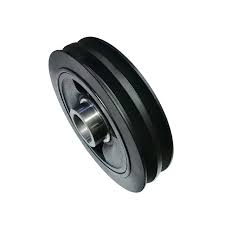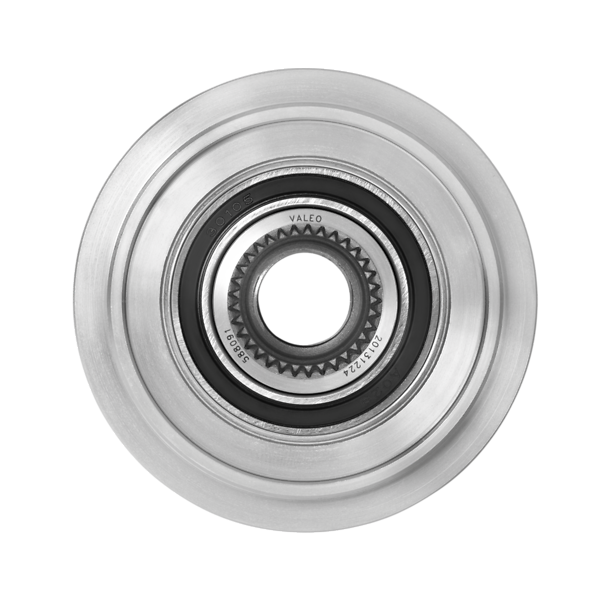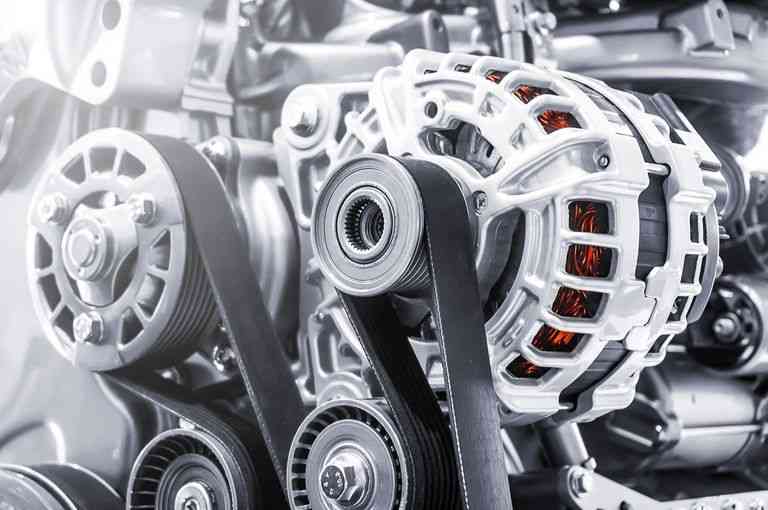Product Description
Quick view:
| Description | Auto Parts Timing Belt Tensioner Pulley 5M5G-6K254-AB 1376164 VKM14224 53157110 For CHINAMFG FOCUS And CHINAMFG Car Spare |
| Material | Chrome steel Gcr15, 65Mn, or 55, Aluminum |
| Application car makes | For CHINAMFG For MAZDA For VOLVO |
| Size | Outer: 62 mm Width: 27 mm |
| Position | Idler roller |
| Weight | 0.27 kg |
| Brand | SI, PPB, or customized |
| Packing | Neutral, SI, PPB brand packing or customized |
| OEM/ODM service | Yes |
| Manufacture place | ZHangZhoug, China |
| MOQ | 100 PCS |
| OEM replacement | Yes |
| Inspection | 100% |
| Warranty | 1 year or 40,000-50,000 KMS |
| Certificate | ISO9001:2015 TS16949 |
| Payment | T/T, PayPal, Alibaba |
Fit for:
For CHINAMFG FIESTA V (JH_, JD_) (2001/11 - 2571/03)
For CHINAMFG CHINAMFG (JU_) (2002/08 - 2012/12)
For CHINAMFG FOCUS C-MAX (2003/10 - 2007/03)
For CHINAMFG FOCUS II (DA_) (2004/11 - /)
For CHINAMFG FOCUS II Estate (DA_) (2004/11 - 2012/09)
For CHINAMFG FOCUS II Saloon (DA_) (2005/04 - /)
For CHINAMFG FOCUS II Convertible (2006/10 - /)
For CHINAMFG MONDEO IV Saloon (BA7) (2007/03 - /)
For CHINAMFG MONDEO IV (BA7) (2007/03 - /)
For CHINAMFG MONDEO IV Turnier (BA7) (2007/03 - /)
For CHINAMFG C-MAX (DM2) (2007/02 - /)
For CHINAMFG FIESTA VI (2008/06 - /)
For CHINAMFG FIESTA VI Van (2009/01 - /)
For CHINAMFG C-MAX II (DXA/CB7, DXA/CEU) (2571/12 - /)
For FORD GRAND C-MAX (DXA/CB7, DXA/CEU) (2571/12 - /)
For CHINAMFG FOCUS III (2011/04 - /)
For CHINAMFG FOCUS III Saloon (2011/04 - /)
For CHINAMFG FOCUS III Turnier (2011/05 - /)
For CHINAMFG FIESTA Saloon (2571/04 - /)
For CHINAMFG B-MAX (JK) (2012/10 - /)
For CHINAMFG B-MAX Van (2012/10 - /)
For MAZDA 2 (DY) (2003/02 - /)
For CHINAMFG S40 II (MS) (2004/01 - /)
For CHINAMFG V50 (MW) (2004/04 - /)
For CHINAMFG C30 (2006/10 - 2012/12)
OE Numbers:
1376164
5M5G-6K254-AB
C401-12-500
Reference:
For DAYCO: ATB1017
For FEBI BILSTEIN: 29952
For GATES: T43171
For INA:
For SKF: VKM 14224
ZheJiang Mighty (SI Bearing)are providing deep groove ball bearing, tapered roller bearing, pillow block bearing, spherical roller bearing, angular contact ball bearing, needle bearing, self-aligning ball bearing, linear bearing, wheel hub bearing, hub unit, clutch release bearing, belt tensioner, etc.
Our Bearing Advantage:
1.Free Sample bearing
2.ISO certified
3.Bearing Small order accepted
4.In Stock bearing
5.OEM bearing service
6.Professional: Over 20 years manufacture bearing
7.Customized bearing, Customer's bearing drawing or samples accepted
8.Competitive price
9.TT Payment, Paypal, Alibaba payment, Trade Assurance Order
FAQ:
1. Q: Can you help with my own brand?
A: Sure. We can make for your brands. We can mark your brand name and use your box's design with the legal authority letter.
2. Q: How can I make an inquiry?
A: You can contact us by email, telephone, WhatsApp, , etc.
3. Q: How long can reply inquiry?
A: Within 24 hours.
4.Q: Which Service you can provide?
A: 1. Help customers to choose correct bearing
2. Professional team, make your purchase easily
| After-sales Service: | Yes |
|---|---|
| Warranty: | 12 Month |
| Type: | Tensioner Bearing |
| Material: | Chrome Steel |
| Tolerance: | P0 |
| Certification: | ISO9001, TS16949 |
| Samples: |
US$ 20/Piece
1 Piece(Min.Order) | |
|---|
| Customization: |
Available
| Customized Request |
|---|

How do car pulleys play a role in the overall reliability and longevity of a car's engine?
Car pulleys play a significant role in the overall reliability and longevity of a car's engine. Their proper functioning and maintenance contribute to the smooth operation of various engine components. Here's a detailed explanation of how car pulleys impact the reliability and longevity of a car's engine:
Accessory Drive System:
The car pulleys are an integral part of the accessory drive system in an engine. They are responsible for transferring rotational power from the engine's crankshaft to various accessories such as the alternator, power steering pump, air conditioning compressor, water pump, and more. The reliability and longevity of these accessories are closely tied to the performance of the car pulleys. If the pulleys fail or operate inefficiently, it can lead to the malfunction or inadequate performance of these accessories, potentially causing engine issues and reduced reliability.
Belt Tension and Alignment:
Proper tension and alignment of the belts connected to the car pulleys are crucial for reliable engine operation. If the pulleys are misaligned or the belt tension is incorrect, it can result in belt slippage, increased wear, and reduced power transmission efficiency. Slipping belts can cause the accessories to underperform or fail, leading to problems like insufficient charging (alternator), difficulty in steering (power steering pump), inadequate cooling (water pump), or poor cabin comfort (air conditioning compressor). Over time, these issues can put additional strain on the engine and potentially lead to premature component wear or failure.
Pulley Bearing Health:
The pulleys in the engine incorporate bearings that allow smooth rotation. The health of these bearings is crucial for the reliability and longevity of the engine. Worn-out or damaged pulley bearings can result in increased friction, noise, vibration, and potential pulley failure. If the bearings fail completely, it can lead to a seized pulley, causing the belt to stop rotating and resulting in the malfunction of the associated accessories. The lack of proper lubrication, exposure to contaminants, or general wear and tear can all contribute to bearing degradation. Regular inspection and maintenance of the pulley bearings can help identify and address issues early, promoting engine reliability and longevity.
Efficiency and Performance:
An efficient and well-maintained car pulley system contributes to the overall efficiency and performance of the engine. When the pulleys operate smoothly, transmit power effectively, and maintain proper belt tension, the engine's accessories can function optimally. This ensures that the engine operates under ideal conditions, reducing unnecessary strain and minimizing the risk of premature wear or component failure. Additionally, an efficient pulley system can also contribute to better fuel efficiency, as it requires less engine power to drive the accessories.
Preventive Maintenance:
Regular preventive maintenance, including inspection, cleaning, and lubrication of the car pulleys, is essential for ensuring their reliability and longevity. This maintenance helps identify any misalignment, belt tension issues, or bearing problems early on, allowing for timely repairs or replacements. By addressing potential pulley-related issues promptly, the risk of more significant engine problems and subsequent damage can be minimized, contributing to the overall reliability and longevity of the engine.
In summary, car pulleys play a vital role in the overall reliability and longevity of a car's engine. Their proper functioning, correct belt tension, alignment, and healthy pulley bearings contribute to the smooth operation of engine accessories and minimize unnecessary strain. Regular maintenance and timely repairs or replacements of pulley-related issues are essential to ensure the engine operates optimally, reducing the risk of premature component wear or failure.

How do car pulleys contribute to the overall fuel efficiency of a vehicle?
Car pulleys play a significant role in the overall fuel efficiency of a vehicle. They contribute to the efficient operation of various engine-driven components and help reduce parasitic losses. Here's a detailed explanation of how car pulleys contribute to the overall fuel efficiency of a vehicle:
- Reduced Parasitic Drag: Car pulleys are responsible for driving accessories such as the alternator, power steering pump, air conditioning compressor, and water pump. These accessories draw power from the engine, creating parasitic drag that consumes fuel. Efficiently designed and properly tensioned pulleys minimize the resistance encountered by these accessories, reducing the amount of power required to operate them and minimizing fuel consumption.
- Optimized Power Delivery: Pulleys help optimize power delivery to the driven components. Properly sized and aligned pulleys ensure that the engine's power is efficiently transferred to the accessories without unnecessary energy losses. This allows the accessories to operate at their intended speeds and power requirements, minimizing the need for additional energy and improving overall fuel efficiency.
- Improved Throttle Response: Car pulleys can enhance throttle response, which indirectly affects fuel efficiency. Lighter pulleys with reduced rotational inertia can reduce the time it takes for the engine to respond to throttle inputs. This improved response allows for more precise control over the engine's power output, enabling drivers to modulate their acceleration and maintain efficient fuel consumption during various driving conditions.
- Efficient Cooling System Operation: The water pump, driven by a pulley, circulates coolant throughout the engine to maintain optimal operating temperatures. Properly functioning pulleys ensure that the water pump operates at the appropriate speed, delivering sufficient coolant flow for efficient engine cooling. This prevents overheating and the need for fuel-consuming measures, such as running the cooling fans at higher speeds, to maintain engine temperature.
- Optimal Charging System Performance: The alternator, driven by a pulley, is responsible for charging the vehicle's battery and providing electrical power to various electrical systems. Well-maintained pulleys ensure that the alternator operates at the correct speed, generating the necessary electrical power without excessive strain on the engine. This helps maintain the battery's charge, reducing the need for frequent recharging and optimizing fuel efficiency.
- Proper Power Steering Function: The power steering pump, driven by a pulley, assists in steering effort by providing hydraulic power. Smooth and efficient operation of the power steering system reduces the strain on the engine and minimizes fuel consumption. Well-maintained pulleys ensure that the power steering pump operates optimally, supporting efficient power assistance and reducing unnecessary power draw from the engine.
In summary, car pulleys contribute to the overall fuel efficiency of a vehicle by reducing parasitic drag, optimizing power delivery, improving throttle response, facilitating efficient cooling system operation, enabling optimal charging system performance, and supporting proper power steering function. Proper maintenance, alignment, and tensioning of pulleys are essential to ensure their efficient operation, minimize energy losses, and maximize fuel efficiency.

What is a car pulley, and how is it used in automotive systems?
A car pulley is a mechanical component used in automotive systems to transfer power, drive auxiliary components, and facilitate the operation of various systems within a vehicle. It is a wheel-like device with a grooved rim that is typically made of metal or composite materials. Here's a detailed explanation of the car pulley and its applications in automotive systems:
A car pulley operates based on the principles of rotational motion. It is usually mounted on the engine crankshaft, which is connected to the pistons and converts the reciprocating motion of the pistons into rotational motion. The pulley is driven by the rotational motion of the crankshaft and is connected to other components or systems through belts or chains.
There are different types of car pulleys used in automotive systems, including:
- Accessory Pulleys: These pulleys are responsible for driving various accessory components in the vehicle, such as the alternator, power steering pump, water pump, and air conditioning compressor. The accessory pulleys are typically connected to these components through belts, such as the serpentine belt or V-belts, and transfer power from the engine to operate these systems.
- Tensioner Pulleys: Tensioner pulleys are used to maintain the proper tension of belts in the automotive system. They are designed to apply tension to the belts, ensuring that they remain properly seated on the pulleys and operate smoothly. Tensioner pulleys often have built-in mechanisms, such as springs or hydraulic systems, to automatically adjust the tension and compensate for belt stretch or wear.
- Idler Pulleys: Idler pulleys are used to change the direction of a belt or provide additional support and tension to the belt. They are stationary pulleys that guide the belt around various components and help maintain proper belt alignment. Idler pulleys play a crucial role in ensuring smooth belt operation and preventing slippage or excessive wear.
- Crankshaft Pulley: The crankshaft pulley is directly attached to the crankshaft and is responsible for driving the other pulleys and components in the accessory drive system. It is often a larger pulley compared to the accessory pulleys and serves as the starting point for power transfer through belts or chains.
In automotive systems, car pulleys are used to transmit power efficiently and reliably from the engine to various components and systems. They enable the operation of critical systems such as the electrical charging system (alternator), power steering system (power steering pump), cooling system (water pump), and air conditioning system (air conditioning compressor).
The rotation of the car pulleys is synchronized with the engine speed, allowing the driven components to operate at the appropriate speed and deliver the required performance. Proper belt tension, guided by tensioner and idler pulleys, ensures efficient power transfer and prevents belt slippage or excessive wear. Additionally, car pulleys are designed to handle the high temperatures and demanding conditions of the engine compartment.
Overall, car pulleys are essential components in automotive systems, enabling the efficient and reliable operation of auxiliary systems and ensuring the smooth functioning of a vehicle's various functions.


editor by CX
2023-12-07